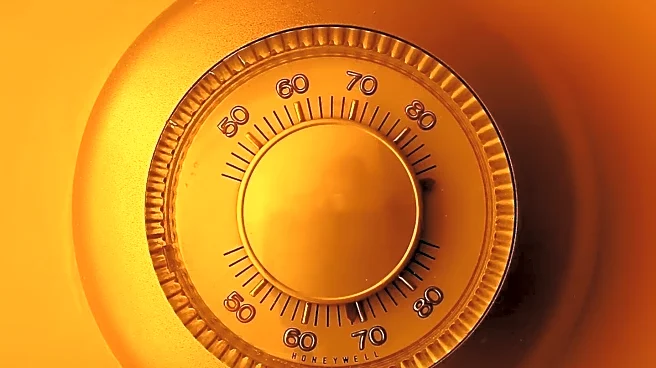What's Happening?
As winter approaches, experts are advising homeowners on optimal thermostat settings to balance comfort and energy efficiency. The recommended setting is 68 degrees Fahrenheit when at home and between 60 to 65 degrees when asleep or away. Adjusting the thermostat by
7 to 10 degrees for 8 hours daily can save up to 10% annually on heating and cooling costs, according to the Department of Energy. HVAC professionals emphasize the importance of understanding one's heating system and avoiding drastic temperature changes, which can lead to inefficiency and higher bills. Proper placement of thermostats and regular system maintenance are also crucial for accurate temperature regulation and cost savings.
Why It's Important?
These recommendations are significant as they offer a practical approach to reducing energy consumption and lowering heating bills during the colder months. With energy costs rising, homeowners can benefit from these strategies to manage expenses without sacrificing comfort. The advice also highlights the importance of system maintenance and proper insulation, which can prevent energy waste and improve overall efficiency. By following these guidelines, homeowners can contribute to energy conservation efforts and potentially reduce their environmental impact.
What's Next?
Homeowners are encouraged to assess their current HVAC systems and consider professional inspections to ensure optimal performance. Investing in better insulation and addressing any system inefficiencies can further enhance energy savings. As winter progresses, monitoring energy bills and adjusting settings as needed will be crucial for maintaining cost-effective heating. Additionally, those in the market for new HVAC systems should prioritize energy-efficient models that suit their home's specific needs.
Beyond the Headlines
The broader implications of these recommendations extend to environmental conservation efforts, as reduced energy consumption can lower carbon footprints. This approach also aligns with increasing consumer interest in sustainable living practices. Furthermore, the focus on system maintenance and efficiency may drive demand for HVAC services, potentially impacting the industry positively.

















